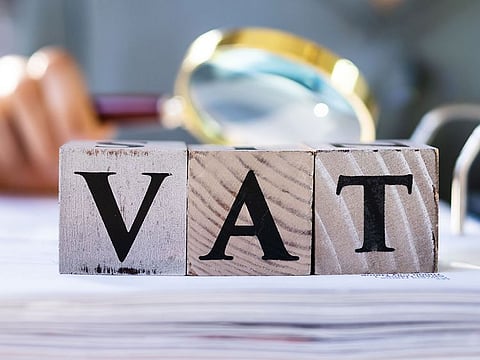UAE's VAT rules: How does 1-year cut-off rule apply to multi-year leasing contracts?
With staggered payments on leases, a cut-off period can be triggered for VAT

When an innocuous question leads to hours of tax discussions, one realises the beauty of taxation and one’s fascination for the subject.
The question was simple: What are the VAT implications on a 4-year equipment lease invoiced through eight semi-annual invoices? In business, this question encompasses a wide range of transactions.
The lessors - be of goods, vehicles, commercial real estate or IPRs - need to take a note of the VAT implications.
It is commonly believed that that VAT would be payable in instalments upon issuance of the respective eight semi-annual invoices.
VAT is calculated on the ‘date of supply’ of goods or services. The date of supply of goods/services for any contract that includes periodic payments or consecutive invoices has been specifically defined. It shall be the earliest of:
In the event a tax invoice is issued or a payment is received, VAT will be due only to the extent of the amount of such tax invoice or the payment. The remainder will be payable later as per the VAT laws.
The real challenge - for long-term contracts - arises at the expiration of one year. Does VAT become immediately payable on the entire remainder value?
Case study
Let us take an example of commercial property lease for four years for a rent of Dh2 million, for which advance invoices of Dh250,000 is issued every six months. The first two tax invoices - issued before the expiration of one year from the contract date - should trigger VAT on the first Dh500,000.
For the remainder, the expiration of one year will occur earlier than the issuance of any subsequent invoices or payments thereof. Thus, a question arises if VAT is payable on the balance Dh1.5 million immediately upon the completion of one year.
The ‘date of supply’ provisions do not provide for the contract value to be apportioned over the contract period or to calculate proportionate value at the expiration of one year. In the absence of such apportionment, the ‘date of supply’ could apply to the entire remainder value once the one-year period expires.
Nature of leasing transactions
It could be contended that the leasing services are provided on a daily basis over the course of contractual period and that the one year period never expires.
In leasing transactions, the service is essentially that of transferring the right to use the property. The transfer (of the right to use) occurs at a point of time - and not over a period of time. While the transfer may be valid - or the usage of the property may be enjoyed - for a period of time, the event of transfer does not occur on a daily basis. Such transfer occurs once upon signing of the contract.
In relation to leasing of cars for an extended period, it has been clarified that the date of supply will be the earliest of the three specified dates - provided that it does not exceed one year from the start of the lease.
Accordingly, the leasing service should be treated to have been ‘provided’ at the start of the leasing period. At the expiration of one year, in absence of apportionment, the ‘date of supply’ for the entire remainder value could be triggered leading to a significant VAT liability.
International jurisprudence
Instances of annual tax points in case of continuous supplies could be found in the VAT/GST laws of the UK and India.
In the UK, the annual tax point applies only to taxable supplies between related parties where the recipient is unable to fully recover the input VAT.
Being related parties with the recipient unable to recover 100 per cent input VAT, the VAT accounting could be indefinitely delayed by not issuing VAT invoice or exchanging the lease payments. The creation of annual tax point prevents such indefinite delay in VAT accounting.
Further, the annual tax point is created at the end of each subsequent period of 12 months, which essentially requires apportionment of contract value over the contract period.
The current UAE VAT provisions do not refer to such specific scenarios and could therefore apply to all instances of continuous services.
Corporate tax
VAT implications could impact corporate tax as well. The recovery of input VAT on the entire remainder value could require recognition of deferred tax asset/liabilities in the books of account.
Taxation is all about seeking the right answers. It requires asking the right questions – whether consciously or innocuously - and one’s willingness to challenge the mere hearsays about the possible tax implications.
Sign up for the Daily Briefing
Get the latest news and updates straight to your inbox








